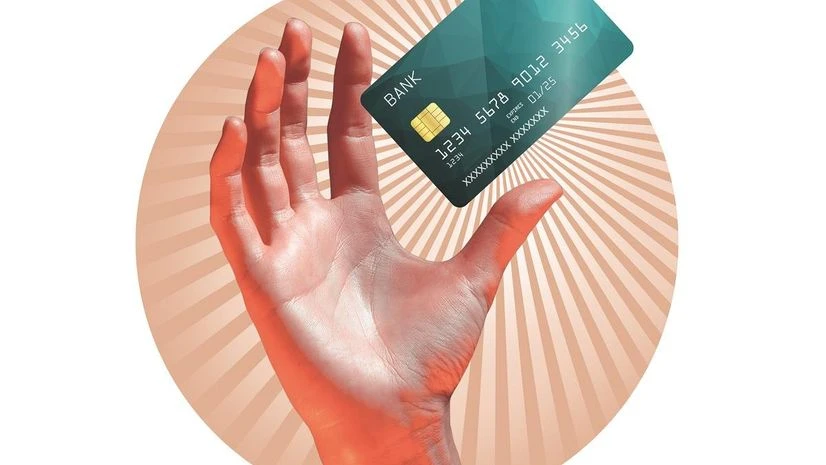Advanced Credit Card Strategies
To further enhance your credit card experience and financial management, consider these additional strategies:
1. Using Credit Cards for Investment and Savings
- Credit Card Spending to Earn Rewards: Utilize your credit card for strategic purchases that align with reward categories. For getdiscoverstudent instance, paying for business expenses, utility bills, or even taxes can help you accumulate rewards or cashback.
)
- Leveraging 0% APR Offers: Take advantage of promotional 0% APR offers on balance transfers or purchases. This can be a cost-effective way to manage larger purchases or consolidate existing debt without accruing interest during the promotional period.
- Building a Credit History: Use your credit card to build a solid credit history. Consistent, responsible use of your card will reflect positively on your credit report, helping you qualify for better financial products and interest rates in the future.
2. Tax Considerations
- Tax-Deductible Purchases: For business owners or freelancers, certain credit card purchases may be tax-deductible. Keep detailed records and consult with a tax professional to ensure you’re maximizing your deductions.
- Using Credit Cards for Tax Payments: Some credit cards allow you to pay taxes directly. While this may come with fees, it can be a way to earn rewards on large tax payments.
3. Advanced Credit Card Benefits
- Travel Benefits: Many travel-focused credit cards offer perks such as travel insurance, rental car insurance, and access to airport lounges. Use these benefits to enhance your travel experience and save on travel-related expenses.
- Price Protection and Purchase Protection: Some credit cards offer price protection that refunds the difference if you find a lower price on a purchased item. Purchase protection can cover theft or damage to items bought with the card.
- Extended Warranties: Some cards extend the manufacturer’s warranty on eligible purchases, adding extra protection and potentially saving money on repairs.
Navigating Credit Card Changes
1. Understanding Changes in Credit Card Terms
- Interest Rate Changes: Credit card issuers may change your APR based on market conditions or your creditworthiness. Stay informed about any changes to avoid surprises.
- Fee Adjustments: Issuers may adjust annual fees or introduce new fees. Regularly review your card’s terms and compare them with other available cards to ensure you’re getting the best value.
2. Managing Account Changes
- Card Upgrades and Downgrades: If your spending patterns or financial goals change, consider upgrading or downgrading your credit card. An upgrade might offer better rewards or benefits, while a downgrade can reduce fees.
- Account Mergers and Transfers: If your card issuer merges with another company or transfers accounts, be aware of any changes to your terms, benefits, or account number.
Credit Card Management Tools
1. Utilizing Financial Apps
- Expense Tracking Apps: Use apps like Mint, YNAB (You Need A Budget), or PocketGuard to track and categorize your credit card spending. This can help you stay within budget and identify areas for saving.
- Credit Score Monitoring Apps: Services like Credit Karma or Experian allow you to monitor your credit score and get alerts about changes or potential issues.
2. Automated Financial Management
- Automatic Bill Payments: Set up automatic payments to ensure you never miss a due date. This can help you avoid late fees and maintain a good credit score.
- Budgeting Tools: Use online tools or software to create and stick to a budget that includes your credit card spending. This helps manage finances and prevents overspending.
Dealing with Credit Card Issues
1. Disputing Charges
- Fraudulent Charges: Report any unauthorized charges to your card issuer immediately. Most credit cards offer fraud protection and will investigate disputed transactions.
- Billing Errors: If you notice errors on your bill, such as incorrect charges or duplicates, contact your issuer to resolve the issue. Under the Fair Credit Billing Act, you have rights to dispute billing errors.
2. Handling Credit Card Emergencies
- Lost or Stolen Cards: Immediately report a lost or stolen card to your issuer to prevent fraudulent use and request a replacement card.
- Emergency Cash Advances: Some credit cards offer cash advances in emergencies, though they often come with high fees and interest rates. Use this option sparingly and responsibly.
Future of Credit Cards
1. Emerging Technologies
- Smart Credit Cards: Innovations like embedded screens or biometric authentication could make credit cards more secure and interactive.
- Cryptocurrency Integration: Future credit cards might offer features related to cryptocurrency, such as spending Bitcoin or earning rewards in digital currencies.
2. Personalized Financial Solutions
- Customized Rewards: Cards may offer more personalized reward structures based on individual spending patterns and preferences.
- AI-Driven Financial Insights: Advanced AI could provide tailored financial advice, helping you optimize credit card usage and overall financial planning.
Conclusion
Credit cards are more than just a payment method; they are a multifaceted financial tool that can help with budgeting, rewards, credit building, and even investment strategies. By employing advanced management techniques, staying informed about industry trends, and using the latest tools and technologies, you can enhance your credit card experience. Whether you’re aiming to optimize rewards, manage debt, or stay secure, a strategic approach to credit card use will contribute to your overall financial well-being and success.